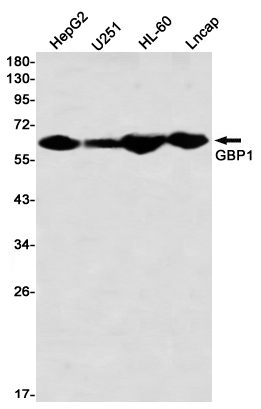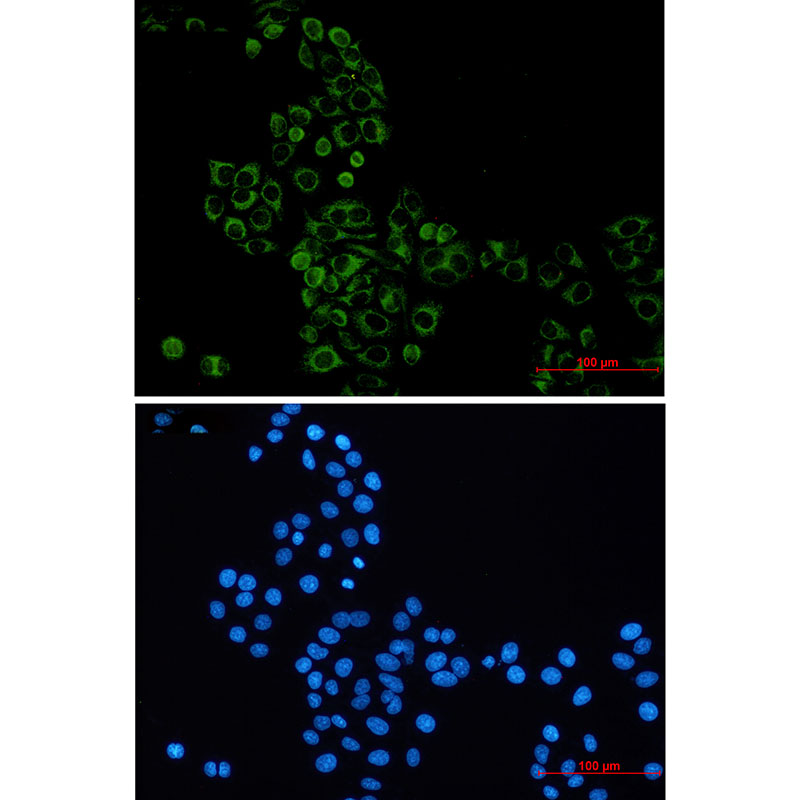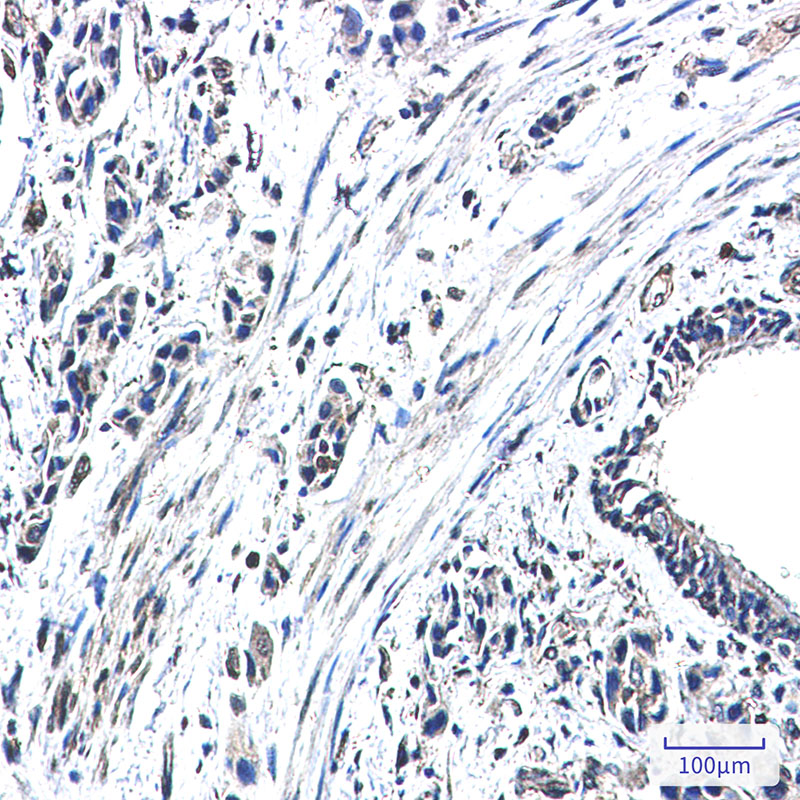


| WB | 1/500-1/1000 | Human,Mouse,Rat |
| IF | 咨询技术 | Human,Mouse,Rat |
| IHC | 1/50-1/100 | Human,Mouse,Rat |
| ICC | 1/50-1/200 | Human,Mouse,Rat |
| FCM | 咨询技术 | Human,Mouse,Rat |
| Elisa | 咨询技术 | Human,Mouse,Rat |
| Aliases | GTP-binding protein 1 |
| Entrez GeneID | 2633 |
| WB Predicted band size | Calculated MW: 68 kDa; Observed MW: 68 kDa |
| Host/Isotype | Rabbit IgG |
| Antibody Type | Primary antibody |
| Storage | Store at 4°C short term. Aliquot and store at -20°C long term. Avoid freeze/thaw cycles. |
| Species Reactivity | Human |
| Immunogen | A synthetic peptide of human GBP1 |
| Formulation | Purified antibody in TBS with 0.05% sodium azide,0.05%BSA and 50% glycerol. |
+ +
以下是关于GBP1抗体的3篇文献示例(内容为模拟概括,仅供参考):
---
1. **文献名称**: *Guanylate-binding protein 1 (GBP1) promotes tumor progression by regulating PD-L1 in human colorectal cancer*
**作者**: Li et al.
**摘要**: 本研究通过免疫组化和Western blot分析,发现GBP1在结直肠癌组织中高表达,并与PD-L1水平呈正相关。使用抗GBP1抗体证实其通过激活STAT3通路促进免疫抑制微环境,提示GBP1可作为潜在治疗靶点。
---
2. **文献名称**: *GBP1 modulates macrophage inflammatory responses via NLRP3 inflammasome activation*
**作者**: Smith et al.
**摘要**: 研究利用GBP1抗体敲低巨噬细胞中GBP1表达,发现其通过调控NLRP3炎症小体影响IL-1β分泌,揭示GBP1在细菌感染及自身免疫性疾病中的双重作用机制。
---
3. **文献名称**: *Interferon-induced GBP1 is a biomarker of disease severity in COVID-19 patients*
**作者**: Chen et al.
**摘要**: 通过ELISA和免疫荧光技术结合抗GBP1抗体,发现COVID-19重症患者血清及肺组织中GBP1显著升高,提示其可作为预测疾病进展的生物标志物。
---
注:以上文献为示例性概括,实际引用时需以真实发表的论文为准。
The guanylate-binding protein 1 (GBP1) is a member of the interferon (IFN)-inducible GTPase family, first identified for its robust expression in response to IFN-γ. It plays a critical role in innate immunity, particularly in host defense against intracellular pathogens, including bacteria, viruses, and parasites. GBP1 is involved in regulating inflammatory responses, autophagy, and cell-autonomous immunity by disrupting pathogen membranes or modulating signaling pathways like NF-κB. Structurally, it contains an N-terminal GTPase domain and a C-terminal helical domain, enabling its oligomerization and membrane-targeting functions.
GBP1 antibodies are essential tools for studying its expression, localization, and functional mechanisms. They are widely used in techniques such as Western blotting, immunofluorescence, and immunohistochemistry to investigate GBP1's role in diseases. For instance, elevated GBP1 levels are observed in chronic inflammatory conditions (e.g., rheumatoid arthritis) and certain cancers, where it can act as both a tumor suppressor or promoter depending on context. In cancer research, GBP1 antibodies help assess its association with tumor progression, immune evasion, and response to therapies. Additionally, these antibodies aid in exploring GBP1's interplay with other immune mediators, offering insights into its dual roles in pro- and anti-inflammatory processes. Its dynamic regulation and pleiotropic functions make GBP1 a compelling target for therapeutic and diagnostic applications.
×